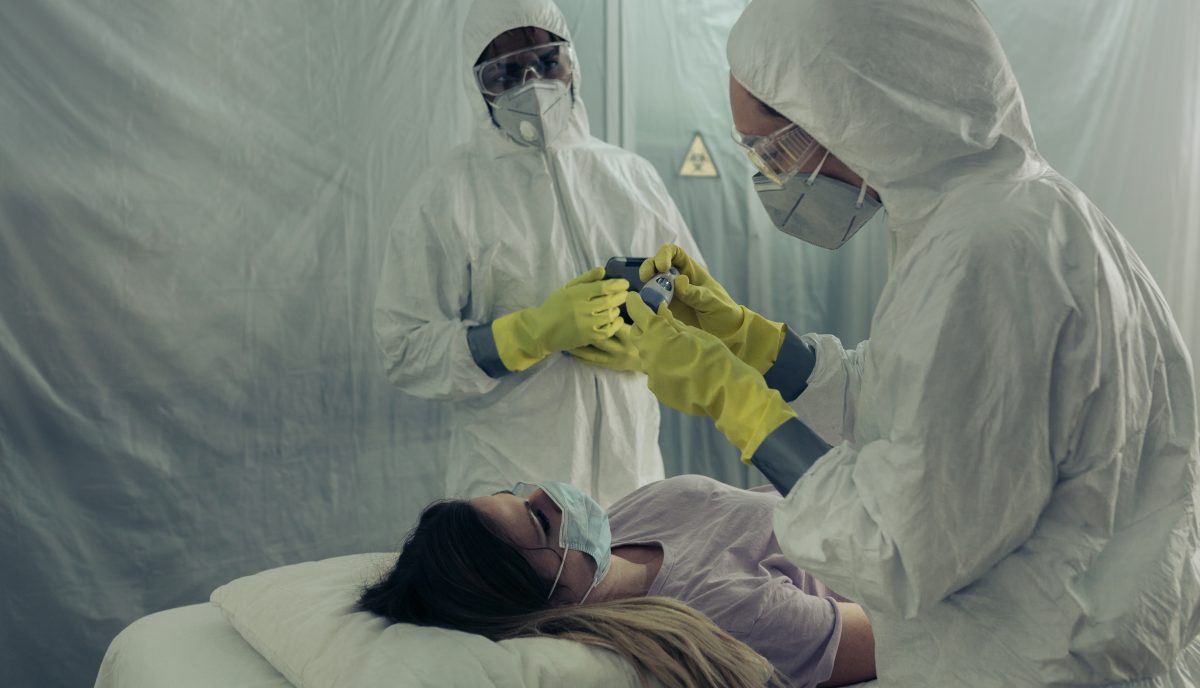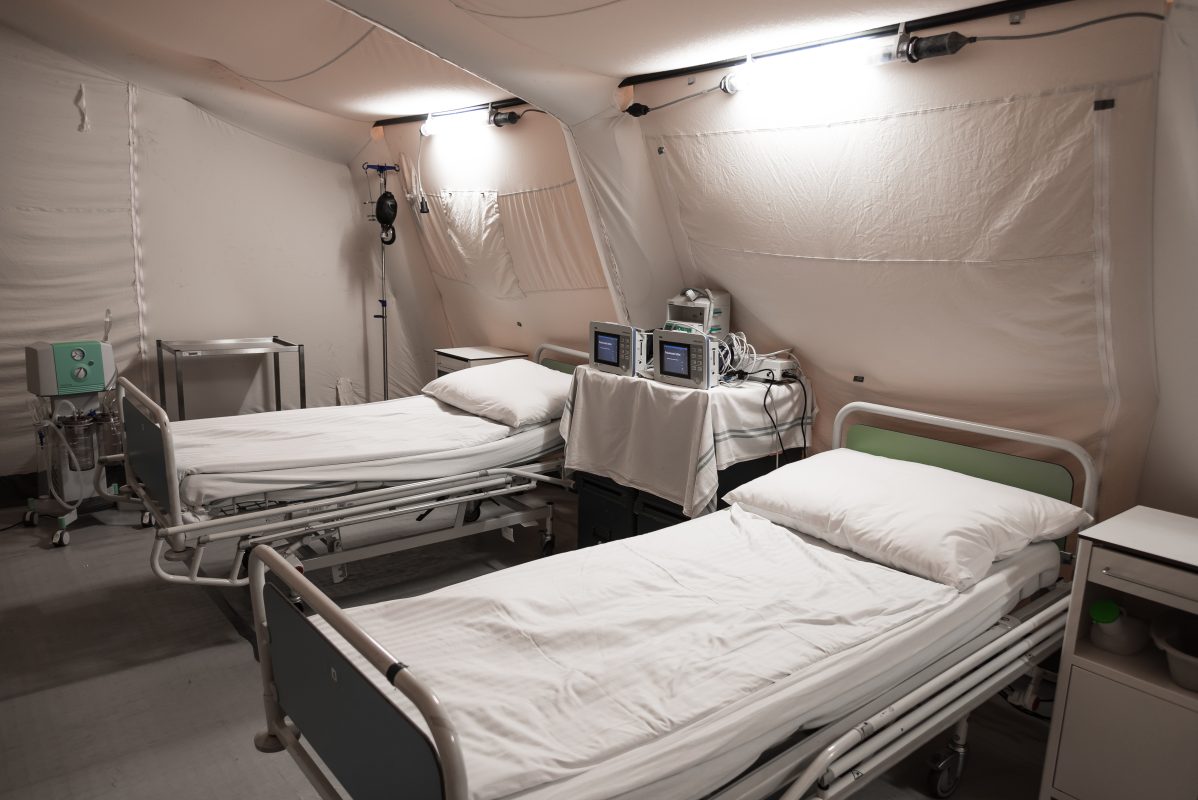In times of wars and natural disasters, it is important that there are medical practitioners on the ground to attend to the needs of affected individuals. The healthcare professionals on the ground ensure that the casualties caused by famine, war, and disaster are reduced to the barest minimum.
One of the most important equipment pieces doctors and nurses in the field can take advantage of is deployable field hospitals. This article examines some of the ways healthcare professionals can actually benefit from using them in rendering their services.
Read on to find out what deployable field hospitals are and at least five ways healthcare professionals can benefit from deployable field hospitals.
What Are Deployable Field Hospitals

Deployable Field Hospitals are a form of mobile health services. From the word ‘deploy,’ meaning these hospitals aren’t originally a part of a certain locality but are installed there temporarily to help meet the medical needs present there. These hospitals are said to be highly mobile and self-sufficient. Personnel can even easily set it up via quick installation.
They’re usually set up in areas under emergency situations like conflict-ridden regions or in case of a disaster or health crisis hitting a territory for a particular period of time. The purpose of a deployable hospital is to plant emergency hospitals in predetermined areas during pressing times to meet the problem of inaccessible private hospitals. These field hospitals play a big role in reducing further human casualties, losses, and suffering.
Sometimes, medical practitioners are attached to the deployed hospitals and sometimes they’re not. Nonetheless, some of the conditions for the deployment of mobile field hospitals include:
- Request from the health sector of the affected region in an emergency situation; and
- The clear definition and full understanding of the roles and responsibilities involved in installing and operating a mobile field hospital.
Healthcare professionals deployed to field hospitals can benefit in the following ways:
- Rich Medical History For Recommendation At NGOs And Other Entities
It’s no longer news that the world is filled with different scenes of casualties. Its widespread occurrence makes healthcare professionals with experience in a field hospital highly wanted.
The experience garnered while working on the field will make for a rich medical career history that’ll help you secure your dream job at the NGO (non-governmental organization) or group of your choice. And even, if the willingness to help on the field hospital is your passion, you get to do what you like while you boost your resume’s credentials.
- Exposure To Diverse Cultures And Work Environments
It goes without saying that being involved in providing medical care in field hospitals exposes you to diverse work conditions and cultures. While you can’t determine where your skillset would be needed as a healthcare professional during challenging times, one thing you can be sure of is that the working experience in deployable field hospitals is vastly different compared to working at a conventional medical center.
As the name suggests, it’s a mobile hospital. You get to travel and experience different cultures while doing your job. In treating patients on the field, you may even go as far as learning some basics foreign language to aid you in communicating effectively.
- Widened Experience Especially With Emergency And Disaster Management
Due to the nature of work in field hospitals, you’ll discover that your experience is enriched. Not only are you required most of the time to think on your feet, but you’ll also be exposed to different medical challenges which may help you gain a deeper understanding of your profession.
These range from physical injuries to mental health challenges to psychological ones that you may otherwise not be privileged to witness firsthand or know while working in a traditional hospital. Your widened experience will benefit you and help you to become a better healthcare professional. It’ll broaden your knowledge scope of sickness, diseases, and accidents and how to effectively provide treatment to patients.
- Capacity To Work Successfully Under Pressure
One of the things you can’t take away from working in a field hospital is the pressure in the air every shift. It comes with the job. Attending to a handful of people at a time, for instance, and trying to save as many as possible within a limited time frame and a limited resource is a truly challenging situation.
One of the benefits you gain as a healthcare professional in a field hospital is the capacity to work successfully under pressure without caving in and losing your cool. One’s ability to remain calm during pressing times will be developed. Having a clear mind may help you obtain high success rates in the patients that you provide medical care. This will improve your current work profile and will make you highly recommendable for your next job.
- Enhanced Innovativeness Due To Insufficient Resource On Field Hospitals
Another benefit that’s closely related to working under pressure is the enhanced innovativeness people develop to meet changing demands. Most of the time, it’s said that resources provided in many field hospitals may have lower quality than what is really needed. Nonetheless, you have to make do with what is available and save as many lives as you can.
Your enhanced innovativeness will help your creative mind to think about how to ensure that insufficient resources are used wisely. You’ll find this skill and personal development very useful when you leave the field and return back providing services in traditional places of care.
- Greater Communication Skills Developed
Due to the suddenness of how most field hospitals are set up, healthcare professionals tasked with manning it are usually picked from a variety of hospitals and some are even from different countries with different ideologies-all working together to help in the field.
Oftentimes, this mostly creates a communication barrier among healthcare professionals. But with proper training, the field workers can work in sync with one another thereby breaking the present communication barrier to save and protect lives. This training will continue to be useful to them after the field experience when dealing with diverse coworkers in any scenario they’ll be involved in.
Conclusion
The pressures created during a natural disaster like an earthquake, a public health emergency like the ongoing COVID-19 (Coronavirus disease-2019), or war times will lay a lot of demands on the healthcare sector of any government. The constant need for medical attention to mitigate the loss of human lives and the way the hospitals are usually over flooded creates the need for deployable field hospitals operated by competent healthcare professionals.
It’s believed that healthcare professionals help a lot to reduce losses and casualties while they’re in the field. In the process, they also enjoy a number of benefits. These benefits include developed communication skills, the enhanced ability to think on the go and manage resources, improved capacity to work successfully under pressure, and many more.
